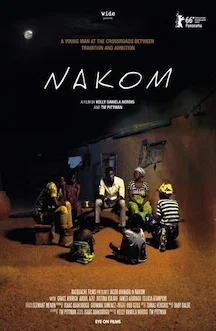Direction: Sam Blitz Bazawule
Country: Ghana
Ghanian writer/director Sam Blitz Bazawule delivers a sensitively imagined tale, showing his undeniably precious qualities as a multifaceted creator of moods in his grand feature debut The Burial of Kojo. Impressively, there’s nothing sloppy in this micro-budgeted piece entirely shot in Ghana with a local crew and many non-professional actors. Each frame was conceived with an enchanting if poignant aura in order to heighten the characters’ emotional states. I was immediately drawn into this trancelike story loaded with mystery, guilt, resentment, magical bewitchment, and the common burdens of life.
Esi (Cynthia Dankwa as a child and Ama K. Abebrese as an adult) narrates her childhood, feeling she never brought luck to her struggling father, Kojo (Joseph Otsiman), after she was born. Yet, they have a very close relationship, living in a tiny isolated village surrounded by water, to where Kojo moved seven years before.
Unexpectedly, they are surprised by a couple of visits that will change their lives. The first one is from a blind stranger seeking a child with a pure heart to whom he can entrust a sacred bird he has been protecting from an evil crow. The second one, more familiar, is Kojo’s brother Kwabena (Kobina Amissah-Sam), who insists on taking his brother back to the city. A strange request, if we take into account their complicated relationship due to tumultuous past incidents.
Kojo finds a miserable city with no opportunities and ruled by aggressive Chinese exploiters who took over the gold mines, depriving the local families of sustenance. But are they really the ones Kojo should be afraid of?
I loved the way the film was shot, from the oneiric tones of Michael Fernandez’s cinematography to the vivid, harrowing scene of eating a roach alive to the stylish architectural perspectives captured in the city. Watching this human story unfold is an uncommonly moving experience that makes The Burial of Kojo a small yet potent African film.






